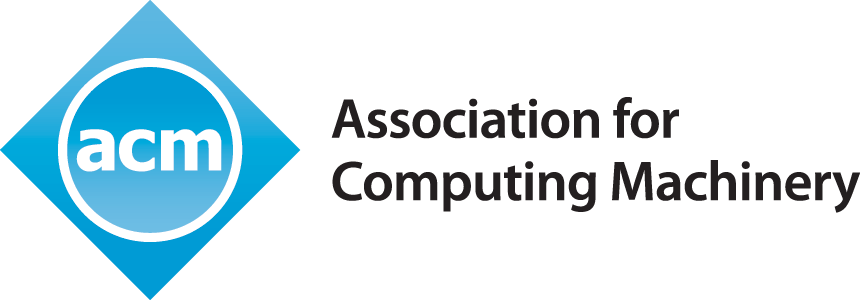SCOPE
Nature inspired methods include all paradigms of evolutionary computation such as genetic algorithms, evolution strategies, genetic programming, ant algorithms, particle swarm systems and so on. These methods are being more and more frequently used to face real-world problems characterized by a huge number of possible solutions, thus their execution often requires large amounts of time. Therefore, they can highly benefit from parallel and distributed implementations, in terms of both reduction in execution time and improvement in quality of the achieved solutions.
The workshop aims at creating a forum of excellence on the use of parallel models of evolutionary computation methods. This can be achieved by bringing together for an exchange of ideas researchers from a variety of different areas, ranging from computer scientists and engineers on the one hand to application-devoted researchers like biologists, chemists, physicians on the other hand.
Since we are going to increasingly observe a trend towards parallelization of evolutionary models in the next years, not only will a Workshop on this topic be of immediate relevance, it will also provide a platform for encouraging such implementations.
Researchers putting emphasis on parallel issues in their work with evolutionary systems are encouraged to submit their work. This event is the ideal place for informal contact, exchange of ideas and discussions with fellow researchers.
TOPICS
The scope of the workshop is to receive high-quality contributions on topics related to parallel and distributed versions of evolutionary methods, ranging from theoretical work to innovative applications in the context of (but not limited to):
• Theoretical and experimental studies on parallel and distributed model implementations (population size, synchronization, homogeneity, communication, topology, speedup, etc.)
• New trends in parallel and distributed evolutionary computation including Grid and Cloud Computing, Internet Computing, General Purpose Computation on Graphics Processing Units (GPGPU), multi-core architectures and supercomputers.
• New parallel and distributed evolutionary models
• Parallel and distributed implementation of evolutionary-fuzzy, evolutionary-neuro and evolutionary-neuro-fuzzy hybrids.
• Development of parallel and distributed evolutionary algorithms for data mining on big data and machine learning.
• Parallel and distributed multi-objective evolutionary algorithms
• Real-world applications of parallel and distributed evolutionary algorithms
Submission and important dates
Submission opening: TBA
Paper Submission deadline: April 12, 2021
Notification of paper acceptance: April 26, 2021
Camera ready submission: May 3, 2021
Author registration deadline: TBA
Conference dates: July 10th-14th, 2021
General information on GECCO workshops can be found at
http://gecco-2021.sigevo.org/Workshops
SUBMISSION GUIDELINES
Authors must submit their papers using the GECCO submission site at
https://ssl.linklings.net/conferences/gecco.
Submissions should adhere to the ACM SIG guidelines as GECCO’s full papers:
Papers Submission Instructions.
Each paper submitted will be rigorously evaluated in a double-blind review process. The evaluation will ensure high interest and expertise of the reviewers. Review criteria include significance of the work, technical soundness, novelty, clarity, writing quality, and sufficiency of information to permit replication, if applicable. All accepted papers will be published in the ACM Digital Library.
Program Committee
Doina Bucur, University of Twente, The Netherlands
Sung-Bae Cho,Yonsei University, Korea
Fabio D’Andreagiovanni, CNRS, UTC - Sorbonne University, France
John Drake, University of Leicester, UK
Pedro M. Ferreira, University of Lisbon, Portugal
Anna Kononova,University of Leiden, The Netherlands
Giovanni Iacca, University of Trento, Italy
Kenji Leibnitz, National Institute of Information and Communications Technology, Japan
Ke Li, University of Exeter, UK
Roberto Montemanni, University of Modena and Reggio Emilia, Italy
Robert Schaefer, University of Science and Technology, Poland
Sevil Sen, Hacettepe University, Turkey
Shinichi Shirakawa, Yokohama National University, Japan
Pawel Topa, AGH University of Science and Technology, Poland
Marco Villani, University of Modena and Reggio Emilia, Italy
Jaroslaw Was, AGH University of Science and Technology, Poland
Nur Zincir-Heywood, Dalhousie University, Canada
GECCO'21 goes online
GECCO 2021 will be an electronic-only conference due to COVID-19. It will be required that the presentation of all accepted papers is provided in the form of a pre-recorded talk. More details about this will be provided soon together with how workshop discussions will occur.
Organized by
Ivanoe De Falco
ICAR-CNR, ITALY
Antonio Della Cioppa
University of Salerno, ITALY
Ernesto Tarantino
ICAR-CNR, ITALY
Umberto Scafuri
ICAR-CNR, ITALY



